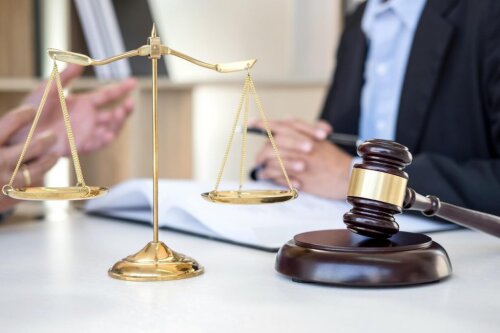Best Oil, Gas & Energy Lawyers in Galway
Share your needs with us, get contacted by law firms.
Free. Takes 2 min.
List of the best lawyers in Galway, Ireland
About Oil, Gas & Energy Law in Galway, Ireland
Galway, a vibrant city on Ireland's west coast, is part of a nation with a growing focus on sustainable energy and efficient resource management. While historically less involved in oil & gas extraction compared to some of its European neighbors, Ireland, including regions like Galway, has been expanding its energy sector, emphasizing renewable sources along with traditional energy supplies. The local legal landscape reflects this evolution with a focus on compliance, environmental protection, and innovation in energy solutions.
Why You May Need a Lawyer
Navigating the complex world of oil, gas, and energy law requires specialized legal assistance, especially when dealing with intricate regulatory frameworks and environmental standards. Common reasons you might require legal help include:
- Entering into contracts for exploration or development in oil and gas sectors.
- Providing consultation on compliance with environmental and safety regulations.
- Handling disputes related to land use or rights associated with oil, gas, or energy projects.
- Assisting in securing permits and licenses for energy projects.
- Advising on investment and financing within the energy sector.
Local Laws Overview
The legal framework governing oil, gas, and energy in Galway is structured to support sustainable development and ensure regulatory compliance. Key aspects include:
- Environmental Regulations: Strict guidelines aimed at minimizing the environmental impact of energy production and utilization.
- Licensing Requirements: Detailed processes for acquiring necessary permits for exploration and production activities.
- Land Use and Planning: Comprehensive planning regulations that oversee how land can be used for energy projects.
- Renewable Energy Incentives: Policies and grants to encourage the development of renewable energy sources.
- Health and Safety Legislation: Standards set to protect workers and the community from risks associated with energy production.
Frequently Asked Questions
What is the role of the Commission for Regulation of Utilities (CRU) in Ireland?
The CRU is an independent body that regulates Ireland’s electricity, natural gas, and water sectors. It ensures safe, secure, and reliable supply of these utilities while promoting competition and protecting consumer interests.
How does Ireland support renewable energy projects?
Ireland provides several incentives for renewable energy through government grants, tax reliefs, and funding schemes aimed at reducing carbon emissions and promoting sustainable energy solutions.
What permits are required for starting a wind energy project in Galway?
To start a wind energy project, developers typically need planning permission, an environmental impact assessment, and specific licenses from local authorities and the CRU.
Are there legal restrictions on offshore drilling near Galway?
Yes, offshore drilling is subject to strict environmental assessments and compliance with both national and EU regulations, including sectors where drilling is prohibited to protect marine ecosystems.
How is land acquisition handled for energy projects?
Land acquisition may involve negotiations for land rights, leases, or purchases, ensuring compliance with local laws regarding zoning, land use, and environmental protection.
What are the key environmental considerations for oil and gas projects?
Projects must minimize environmental impacts, with mandatory assessments covering emissions, waste management, and the protection of natural habitats.
Can disputes over energy contracts be resolved through arbitration?
Yes, contracts often include arbitration clauses to facilitate the resolution of disputes outside court, offering a faster and often less costly resolution method.
What is the Irish position on shale gas extraction (fracking)?
Ireland has a de facto ban on fracking due to environmental and public health concerns, supported by policy decisions emphasizing sustainable energy sources.
How does energy law address climate change in Galway?
Energy laws have increasingly incorporated climate change mitigation strategies, focusing on reducing emissions and promoting renewable energy development.
What happens if a company fails to comply with energy regulations?
Non-compliance can lead to penalties, suspension of operations, or revocation of licenses, in addition to legal actions depending on the severity of the breach.
Additional Resources
For further information or assistance, the following organizations and bodies can be useful:
- Galway County Council: For local regulations and planning permissions.
- Commission for Regulation of Utilities (CRU): Provides information on regulations and compliance in the energy sector.
- Department of the Environment, Climate and Communications: Offers resources on national energy policies and climate action initiatives.
- Irish Wind Energy Association: An industry body for those interested in wind energy projects.
Next Steps
If you require legal assistance in the oil, gas, and energy sector, consider reaching out to specialized law firms in Galway that focus on energy law. Start by consulting with a qualified attorney who can help assess your situation, provide tailored advice, and guide you through the legal processes required for your specific energy-related project or issue. Additionally, attending seminars and workshops related to energy law may enhance your understanding and readiness to navigate this complex legal landscape.
Lawzana helps you find the best lawyers and law firms in Galway through a curated and pre-screened list of qualified legal professionals. Our platform offers rankings and detailed profiles of attorneys and law firms, allowing you to compare based on practice areas, including Oil, Gas & Energy, experience, and client feedback.
Each profile includes a description of the firm's areas of practice, client reviews, team members and partners, year of establishment, spoken languages, office locations, contact information, social media presence, and any published articles or resources. Most firms on our platform speak English and are experienced in both local and international legal matters.
Get a quote from top-rated law firms in Galway, Ireland — quickly, securely, and without unnecessary hassle.
Disclaimer:
The information provided on this page is for general informational purposes only and does not constitute legal advice. While we strive to ensure the accuracy and relevance of the content, legal information may change over time, and interpretations of the law can vary. You should always consult with a qualified legal professional for advice specific to your situation.
We disclaim all liability for actions taken or not taken based on the content of this page. If you believe any information is incorrect or outdated, please contact us, and we will review and update it where appropriate.













